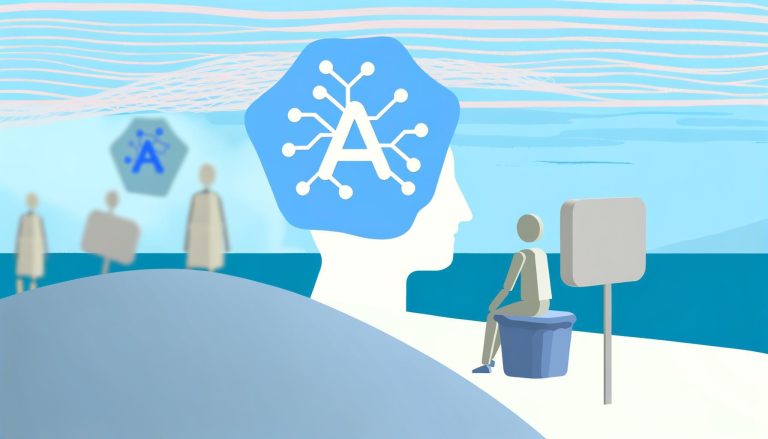As the world continues to embrace rapid technological advancements, the landscape of therapy sessions is inevitably shifting. One notable development is the integration of Artificial Intelligence (AI) in group therapy, creating AI-facilitated support communities. This article explores the future of group therapy within this innovative framework, providing valuable insights and practical advice while maintaining a friendly, engaging tone.
Introduction
Group therapy has long been a cornerstone in mental health treatment, fostering support, understanding, and shared experiences among participants. With the advent of AI-facilitated support communities, we are witnessing a transformation in how these group interactions are managed and experienced. This fusion of AI and group therapy opens up new possibilities for enhanced emotional support, accessibility, and personalized care. In this article, we will explore how AI can revolutionize group therapy and what the future holds for these AI-driven support communities.
The Role of AI in Group Therapy
Artificial Intelligence has the potential to significantly enhance the effectiveness and reach of group therapy sessions. Here are some ways AI is being integrated into these therapeutic environments:
- Moderation and Facilitation: AI can assist in moderating group therapy sessions by recognizing and addressing harmful language, ensuring respectful communication, and keeping discussions on track.
- Personalized Insights: By analyzing data from participants’ contributions, AI can provide tailored feedback and insights, helping individuals understand their emotions and behavior patterns better.
- Resource Allocation: AI can help identify participants who may need additional support or resources, allowing facilitators to allocate their time and effort more effectively.
- Accessibility: AI-driven platforms can offer multilingual support and accessibility features for individuals with disabilities, making group therapy more inclusive.
Moderation and Facilitation
One of the most impactful uses of AI in group therapy is its ability to moderate and facilitate discussions. AI algorithms can monitor conversations for harmful or disruptive behavior, flagging issues that need immediate attention. This helps create a safe space where all participants feel respected and heard.
Personalized Insights
AI’s capacity to analyze large volumes of data allows it to provide actionable insights tailored to each participant. By assessing language patterns, emotional tone, and interaction history, AI can offer personalized recommendations and coping strategies. This level of personalization can significantly enhance individual growth and the effectiveness of therapy interventions.
Benefits of AI-Facilitated Group Therapy
Enhanced Accessibility
AI-facilitated group therapy can reach a broader audience, breaking down geographical barriers and providing support to individuals in remote or underserved areas. Online platforms allow participants to join from anywhere, making therapy more accessible than ever before.
Cost-Effectiveness
Traditional therapy can be expensive, potentially limiting access for some individuals. AI-driven platforms can reduce costs by automating administrative tasks, offering affordable or even free group sessions, and enabling therapists to focus on providing high-quality care.
24/7 Support
AI can offer round-the-clock support through chatbots and virtual assistants, providing immediate assistance when human facilitators are unavailable. This continuous support can help participants manage crises and maintain emotional stability between scheduled sessions.
Data-Driven Outcomes
AI’s ability to collect and analyze data can lead to better therapeutic outcomes. By tracking progress over time, AI can highlight trends, identify potential issues early on, and help facilitators make informed decisions about treatment strategies.
Privacy and Confidentiality
AI platforms can ensure high levels of privacy and confidentiality through encrypted communication and secure data storage. This can help participants feel more comfortable sharing personal information in a group setting, knowing their privacy is protected.
Consistent Quality
AI-driven systems can maintain a consistent quality of care by standardizing processes and procedures. This reduces variability and ensures that all participants receive the same level of support and guidance.
Promoting Self-Reflection and Growth
AI tools can encourage self-reflection by providing participants with insights into their behavior and emotions. This self-awareness can foster personal growth and help individuals set and achieve meaningful goals.
Practical Tips for Integrating AI into Group Therapy
Training and Education
Proper training and education are essential for both therapists and participants to effectively use AI-driven platforms. Facilitators should familiarize themselves with the AI tools available and understand how to integrate them into their sessions seamlessly.
Choosing the Right Platform
Selecting the right AI platform is crucial for successful integration. Look for platforms with robust security features, user-friendly interfaces, and a proven track record of delivering therapeutic benefits. Trial periods or demos can be helpful in assessing different options.
Building Trust
Building trust is fundamental in any therapeutic relationship. Facilitators should be transparent about how AI is used, addressing any concerns participants may have about privacy and confidentiality. Open communication can help alleviate fears and build confidence in the platform.
Feedback and Improvement
Regular feedback from participants is vital for continuous improvement. Encourage participants to share their experiences and suggestions, and use this feedback to refine and enhance the AI-driven support system.
Balancing Technology and Human Touch
While AI offers many benefits, it’s essential to maintain the human touch in therapy. Facilitators should strike a balance between leveraging AI capabilities and providing empathetic, human-centered care. The goal is to complement, not replace, the human element in therapy.
Real-World Examples and Case Studies
Several AI-facilitated support communities have already demonstrated the potential of this technology in group therapy. Here are a few real-world examples and case studies:
- Woebot: This AI-driven mental health chatbot offers cognitive-behavioral therapy (CBT) techniques to users through engaging conversations, providing immediate support and fostering emotional resilience.
- Tess: Tess is an AI mental health chatbot that provides personalized support by recognizing users’ emotional states and offering coping strategies, making it a valuable tool for group therapy settings.
- 7 Cups: 7 Cups connects users with trained listeners and therapists, offering both AI-driven and human support in group and individual therapy formats. This hybrid approach ensures comprehensive care.
Conclusion
The future of group therapy with AI-facilitated support communities is promising, offering enhanced accessibility, personalized care, and continuous support. By integrating AI into group therapy, we can break down barriers to mental health care, provide cost-effective solutions, and promote self-reflection and growth. As AI technology continues to evolve, it will undoubtedly play an increasingly vital role in shaping the future of mental health care, making therapy more inclusive, efficient, and effective.
If you’re interested in experiencing the benefits of AI-facilitated support communities, consider using the Zenora App. With features such as mood and habit tracking, personalized insights, and goal setting, Zenora can help you thrive in your mental health journey.





